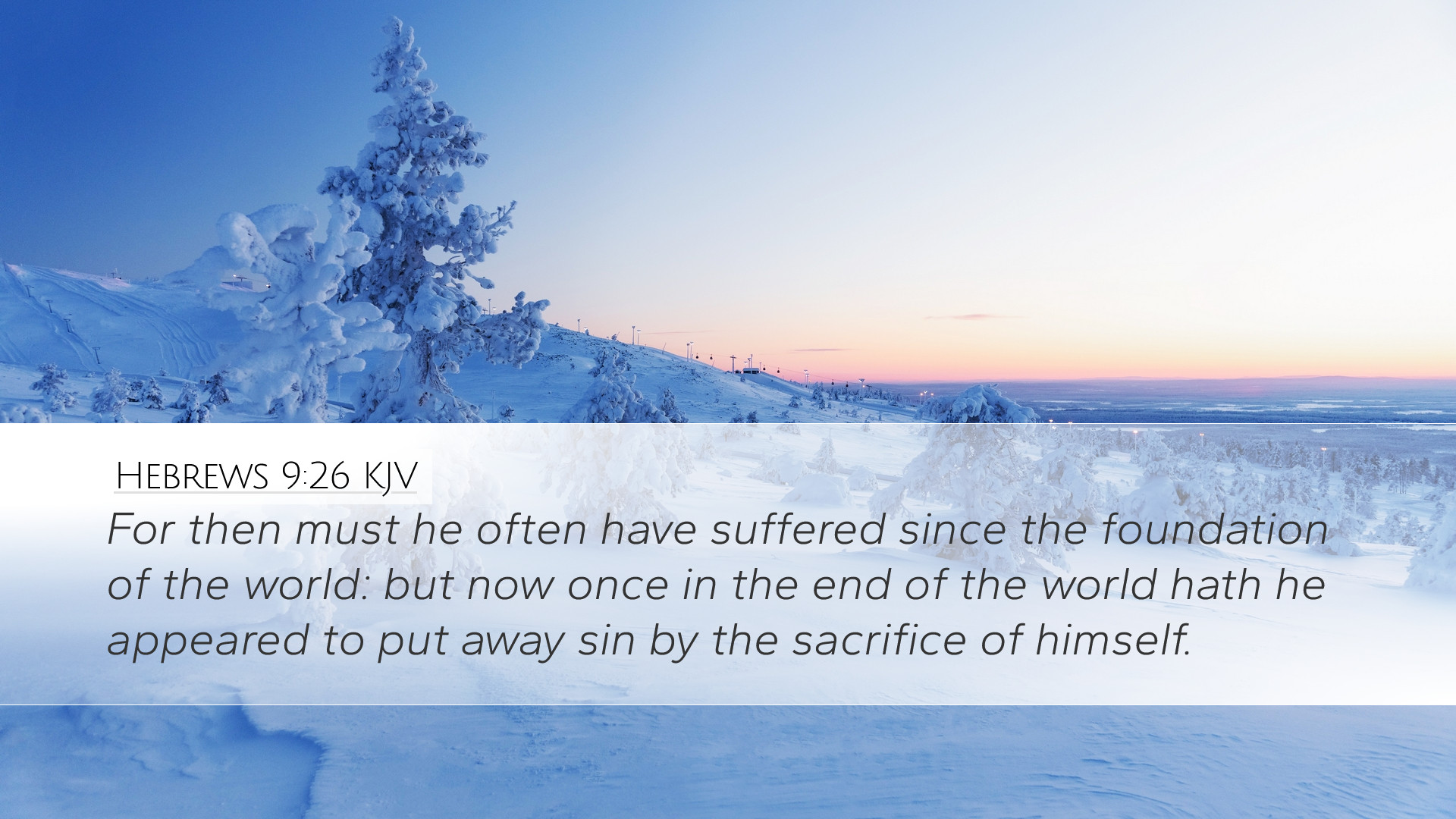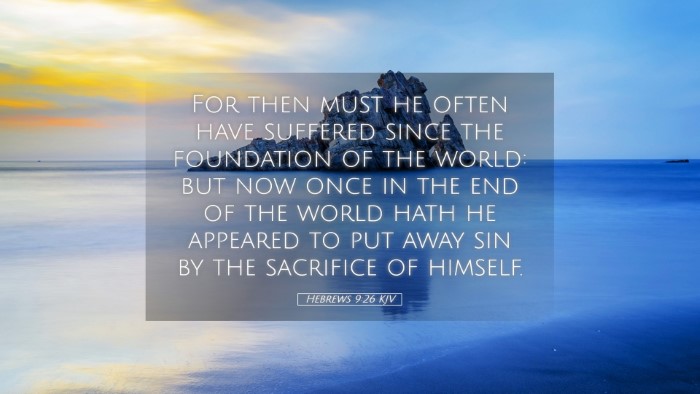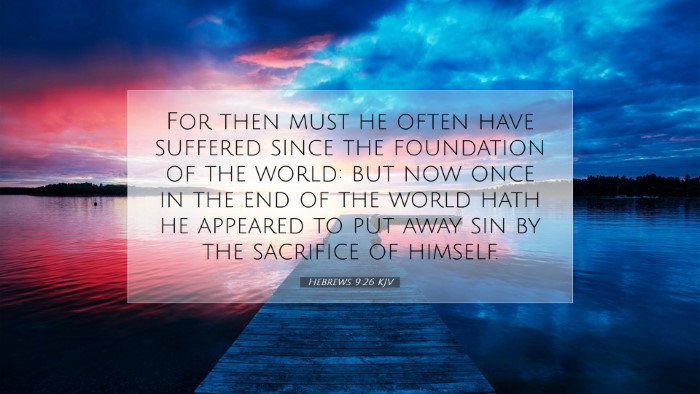Commentary on Hebrews 9:26
Hebrews 9:26 states: "For then must he often have suffered since the foundation of the world: but now once in the end of the world hath he appeared to put away sin by the sacrifice of himself."
This profound verse encapsulates the theological themes of Christ's sacrificial work and the finality of His redemptive act. The commentary from various public domain authors sheds light on multiple aspects of this verse that are crucial for understanding Christian theology.
1. The Frequency of Sacrifices
Matthew Henry emphasizes the contrast inherent in the first portion of the verse: the repetition of sacrifices under the Old Covenant. He argues that if Christ’s sacrifice were necessary perpetually, it would indicate a fundamental flaw in the sacrificial system of the law, implying that it could never fully atone for sin.
- Repetitive Nature: The Jewish sacrificial system required ongoing offerings, highlighting man's continual need for forgiveness.
- Christ's Unique Offering: In contrast, Christ offered Himself once, demonstrating the completeness of His sacrifice.
2. The Foundation of the World
Albert Barnes comments on the phrase "since the foundation of the world", noting its significance in establishing the eternal plan of salvation predestined by God. This alludes to God’s foresight and intentional design for redemption long before humanity’s fall.
- God's Sovereignty: This perspective highlights God's control over history and His purposeful orchestration of events leading to the ultimate sacrifice of Christ.
- The Centrality of Christ: It reveals that Christ’s role as Redeemer was not an afterthought but a central theme in God’s redemptive history.
3. The End of the World
Adam Clarke interprets "the end of the world" as referring to the fulfillment of God's plan in Christ’s incarnation and sacrificial death. This signifies a pivotal moment in which time itself is approached differently from the perspective of divine action.
- Covenantal Transition: Clarke notes this event marks a transition from the Old Covenant to the New Covenant, concluding the age of the law and ushering in an era of grace.
- Finality of Sacrifice: The phrase emphasizes that no further sacrifices are necessary, as Christ’s offering was sufficient and complete.
4. Putting Away Sin
In discussing the latter part of the verse, the phrase "to put away sin by the sacrifice of himself" is of paramount importance. Matthew Henry points out that while the Old Testament sacrifices covered sin, Christ’s sacrifice actually removes it.
- Atonement: The effectiveness of Christ’s sacrifice offers not merely a temporary covering but a complete eradication of sin for those who believe.
- Restoration: This act restores the relationship between God and humanity, offering reconciliation and healing.
5. The Sacrifice of Himself
Barnes notes the importance of understanding that Christ’s sacrifice was voluntary, emphasizing the unique aspect of "the sacrifice of himself." This contrasts with the passive nature of animal sacrifices, making clear that Christ willingly laid down His life for humanity.
- Voluntary Sacrifice: This act of self-sacrifice reveals the depth of Christ's love and commitment to redeeming His creation.
- Personal Ownership: By sacrificing Himself, Christ identifies intimately with humanity, experiencing human suffering and injustice.
Conclusion
Hebrews 9:26 encapsulates the central narrative of the Christian faith—the once-for-all sacrifice of Jesus Christ that expunges sin and provides believers with the hope of eternal life. As theologians and students of Scripture reflect on this verse, it is essential to grasp the depth of its meaning and implications for both personal faith and communal worship.
This verse challenges us to recognize not only the historical significance of Christ’s sacrifice but also its ongoing relevance in the life of believers, emphasizing the necessity of acceptance of this sacrifice as the sole means through which one can be reconciled with God.


